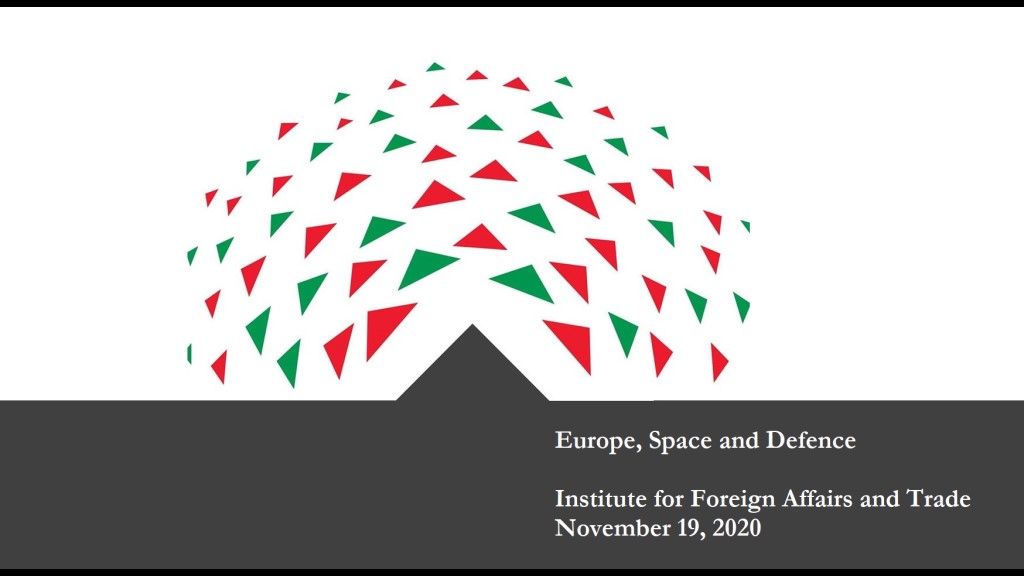Mathieu Bataille, researcher at the European Space Policy Institute (ESPI) and the French Space Agency (Center National D’Etudes Spatiales, CNES), gave a lecture on “Europe, Space and Defence” at the Institute of Foreign Affairs and Foreign Trade. The online event took place on Thursday, November 19, 2020.
The presentation focused on the space defence activities of the European Union and its member states, as well as their connection with the relevant activities of NATO. The presentation also relied on the European Space Policy Institute (ESPI) report published this year. ESPI is an international think tank based in Vienna, supported by the European Space Agency (ESA) and Austria, whose main objective is to support the development of the European space sector.
According to the researcher, the scope of space defence activities includes the following main elements:
Space defence basically involves two aspects:
- Space for Defence
The first aspect relies on four main areas of activity:
- Intelligence, Surveillance and Reconnaissance (ISR),
- Satellite communications (SATCOM),
- Positioning, Navigation and Timing (PNT),
- Space Surveillance and Tracking (SSA-SST).
2. Defence of Space
All activities related to the second aspect rely on three pillars:
- Space segment,
- Ground segment,
- Link segment.
According to the rapporteur, the European Union and its Member States have made significant progress in this area. Relevant European projects (Galileo / EGNOS, Copernicus, GOVSATCOM, EU SST) simultaneously serve common interests of European Union and interests of Member States. At the same time, the potential for common space defence development is even greater, and to this end Mathieu Bataille has made a number of proposals on how a common thoughtful European space policy can help common European developments.
The presentation highlighted examples of smaller European states, from which we can say that the area of space defence has not been limited to the activities of the great powers for some time. Highlights include Denmark, Luxembourg, Poland and the Czech Republic. These examples demonstrate that the development of national space capabilities not only contributes to the security of a given state, but also serves the common defence development of EU and NATO.
Understanding European co-operation and development processes in the field of space defence can contribute to the deepening of the domestic professional discourse on common European defence.
The slides of the lecture can be downloaded from here!
For the full recording please click on the link below or visit our YouTube channel!
JTNDaWZyYW1lJTIwd2lkdGglM0QlMjIxMDAlMjUlMjIlMjBoZWlnaHQlM0QlMjI0NTAlMjIlMjBzcmMlM0QlMjJodHRwcyUzQSUyRiUyRnd3dy55b3V0dWJlLmNvbSUyRmVtYmVkJTJGM0FDa0UxZHBEenclMjIlMjBmcmFtZWJvcmRlciUzRCUyMjAlMjIlMjBhbGxvdyUzRCUyMmFjY2VsZXJvbWV0ZXIlM0IlMjBhdXRvcGxheSUzQiUyMGNsaXBib2FyZC13cml0ZSUzQiUyMGVuY3J5cHRlZC1tZWRpYSUzQiUyMGd5cm9zY29wZSUzQiUyMHBpY3R1cmUtaW4tcGljdHVyZSUyMiUyMGFsbG93ZnVsbHNjcmVlbiUzRSUzQyUyRmlmcmFtZSUzRQ==
